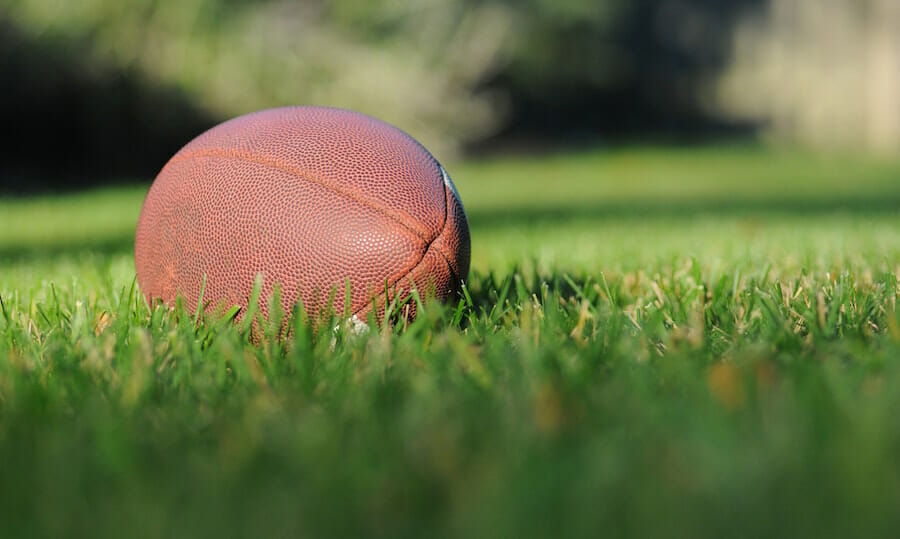
With Super Bowl 53 just days away interest in “American” football is at a fever pitch. There has also been a surge in participation at the Greater Vancouver high school (via the BC Secondary Schools Football Association) and collegiate (UBC/SFU) level alike. In fact, expectations are higher than ever when it comes to feeding the CFL with homegrown talent. Heck, the presence of Canadians in the NFL is growing through the years too. That being said, there’s still a long way to go when it comes to progressing the sport and participation in the Lower Mainland. But while it’s an uphill battle to make it on the professional field, adding regular physiotherapy to both the rehabilitation and training regime will go a long way to allowing our pig skin swilling athletes the opportunity.
3 Reasons Why Amateur Football Players Need to Include Physiotherapy in Their Training Regime
1. Physio is Critical to Rehabilitating Injuries Common to the Sport
While it’s great to see the sport flourish on home turf, its expansion also means increased risk of injury given the high impact nature of the sport.
The first type of injury that comes to mind is a concussion. While the first line of treatment for a concussion sustained on the field must be through a physician and concussion specialist, there is one physiotherapy discipline that can be used to follow a mild traumatic brain injury – vestibular rehabilitation. Studies show that vestibular rehabilitation is an effective modality for managing dizziness, vertigo, and imbalance following concussion. Learn more about this treatment, which is available at our clinic.
The American Orthopedic Society for Sports Medicine states that knee injuries are the most common in football, especially those to the anterior (ACL) or posterior cruciate ligament (PCL), and to the menisci (cartilage of the knee). After ACL injury and corrective surgery, a physiotherapist will provide a post-op program to get your knee back in field form. The rehabilitation regime will include exercises that focus on range of motion, strength and endurance, proprioception/balance, Gait, and all around cardiovascular fitness. View more on our clinic’s ACL rehabilitation program, which is also related to PCL and menisci treatment and therapy.
Shoulder injuries are also very common in football, with the labrum (thick tissue that is susceptible to injury with trauma to the shoulder joint) being particularly susceptible to injury, especially in offensive and defensive linemen. It is also common to see acromioclavicular joint (which is a joint in the shoulder where two bones meet) issues in football players, an injury often responsible for persistent shoulder pain. Not only will physio assist in post-surgery rehab for these shoulder injuries, it can be used to treat chronic pain in the shoulder that will likely result without ongoing attention.
Overuse injuries also arise after significant play on the field, with the lower back (treatment here) and neck (treatment here) being named among the primary recipients of overuse injury. Most common injuries aside, there is no physical injury sustained from football that physiotherapy can’t address. Even better, is that when you use physiotherapy to treat acute and chronic pain, you reduce the risk of painkiller addiction, something that is all too common in football at the high school, amateur, and professional level.
2. Physio is Critical to Preventing Injuries Common to the Sport
As any athlete knows, the best way to keep an injury from impacting performance is to avoid one in the first place. Physical therapy is instrumental in this goal. A sports physiotherapist will ensure that you engage in a football injury prevention program that includes the following:
- A pre-season health and wellness evaluation
- Provision of football-specific warm-up and cool-down routines
- Incorporation of strength training and stretching
- Advice regarding nutrition and hydration
- Guidance regarding other off-season activities to complement body movement and function essential to football
- Guidance on protective equipment (helmet, pads, etc.) fit
3. Enhance Performance the Right Way
By effectively rehabilitating pain and disfunction from prior injuries and remaining relatively free from future injury, you are certainly more like to see an improvement in performance. However, working with a physiotherapist can also help you improve play on the field in a more direct manner.
For one, speed is one of the most important traits of a football player. Physiotherapy can help improve your running Gait, can provide for better balance in tumultuous situations, can help strengthen connective tissue necessary for quickness and pivoting, and will also assist with your breathing technique to ensure you make it to the end zone with defensive tackles left in your dust. View more on how physiotherapy can make you a faster football player.
From individual player to entire offensive and defensive line, physiotherapy can enhance performance the natural way.
Before you or your (coaches) players step on the field contact Absolute PhysioCare to schedule a consolation at our Burnaby BC clinic.
